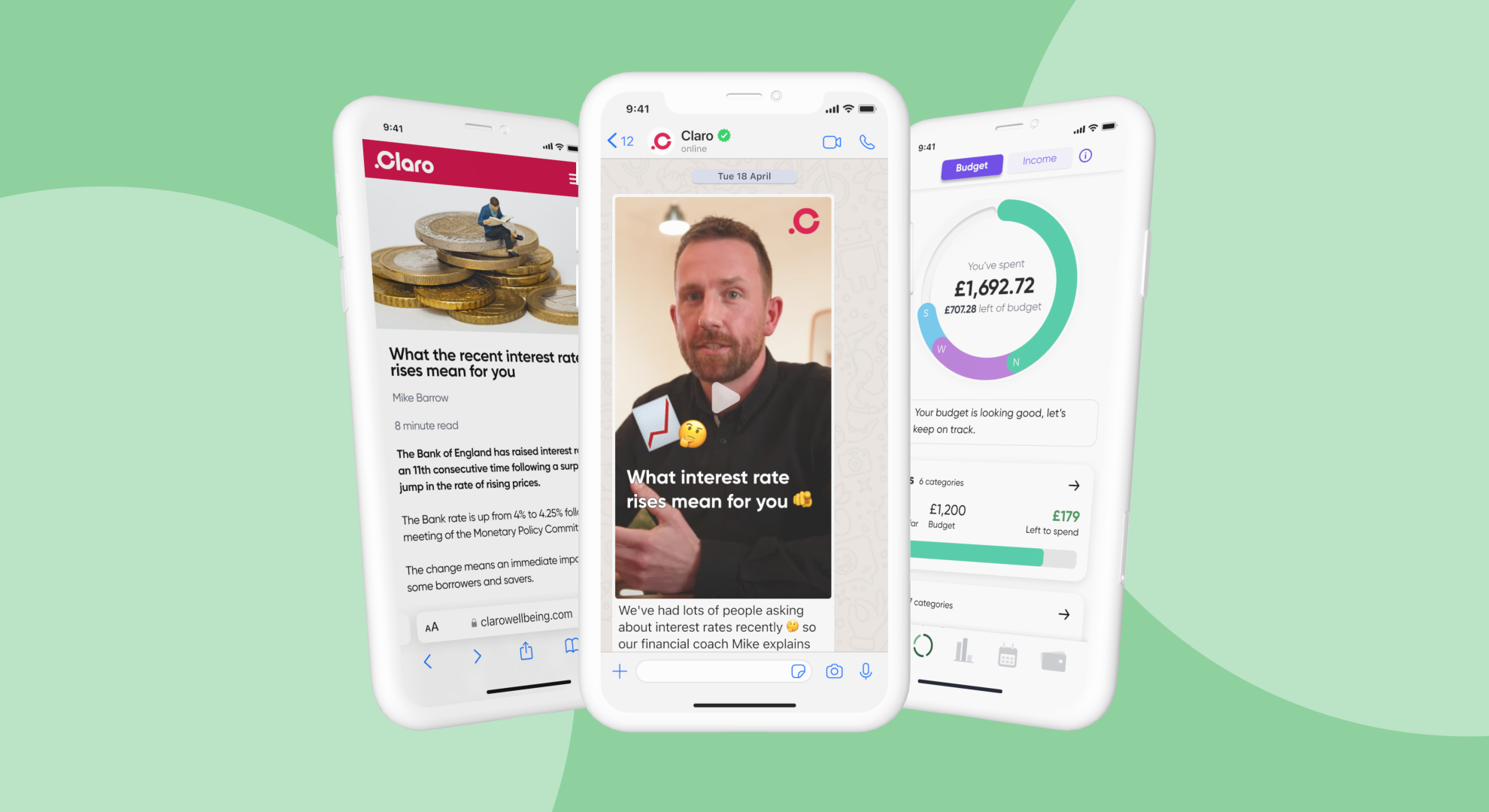6 min read
Should employers acknowledge Blue Monday?
Blue Monday (15 January) has a mixed reputation. But there’s still value in using the day to raise awareness of mental health and wellbeing...

Conversations about finances between employers and employees can be awkward. There are often subtle moments where the more senior person’s position of authority is prominent. Staff can feel reluctant to open up about personal issues as a result, as they can potentially feel vulnerable and judged in these situations.
Lots of people find money uncomfortable to talk about. This can trace back as far as childhood, depending on how finances were discussed in the home. Our report on financial literacy shows that almost two-thirds (60%) of people aged 18 to 24 have vivid memories of frequent financial tensions at home.
When you broach the subject of finances with your team, the way in which you communicate is vital. Differing levels of income among staff will always be present, so be sure to cater to all when you speak. How you handle the matter from start to finish can make or break the success of your financial wellbeing strategy, so tread softly.
As an employer or HR representative, when you’re trying to break the taboo of talking about money in the workplace, you need to gather all the relevant information before you formulate a plan. Initially speaking informally with your team will assist in gauging their biggest areas of stress when it comes to managing their finances. It can be as casual as a pre-meeting chat about the rising energy costs where you introduce the topic by divulging your own feelings on the matter, and even your personal struggles. Follow it up with an anonymous survey to get a bit more information once you’ve successfully broached the topic in person.
It’s important to encourage open conversations, without forcing input from anyone who’s keeping quiet. Pose questions, then allow the team to speak. Cultivating a comfortable environment is the goal here, not finding immediate solutions. The conversations will continue without you. You’re just bringing the topic to the floor so people can get into the right headspace to contribute. Appointing an approachable and potentially less-senior member of staff as the go-to person for financial guidance is a great place to start.
As the more senior member of staff, you’re in a position of power. Particularly around more junior employees, avoid the temptation to “relate”. Your struggles may overlap, but your perspective is likely to be quite different to theirs. It’s okay to share, but be mindful of getting the tone right. A quick mental practice beforehand should keep you focused.
Someone who has just entered the workforce may not have much knowledge on mortgage repayments, nor the interest to learn right now. Their salary is likely to be lower than yours and they may have different financial priorities. Complaining that building your conservatory is taking longer than expected isn’t going to resonate with everyone, so be self-aware when you spark conversations.
Sometimes, things are bleak. Acknowledging that is completely fine. When you’re trying to encourage open conversations, people will shut down if every concern is met with phrases like “It won’t be like this forever” or “Back in my day, things were even worse”. With this approach, you’re closing the door on someone’s experience. We live in the present, so let’s act that way. Sugar-coating works in some situations, but with money, it’s always best to be realistic.
When you’re talking to employees about personal finances, be present. Don’t glance at your phone, watch or laptop to check the time or allow yourself to be open to distraction. It’s a sensitive subject that requires compassion and attention.
Whether it’s a lively lunchtime discussion about interest rates or a one-on-one about budgeting, take a keen interest. It will be noted if your mind is elsewhere, which will make conscious efforts to improve staff financial literacy levels seem disingenuous. Practice what you preach, always.
Depending on the nature of your work and interests, it’s likely that you’re not a finance expert, nor do you need to be to talk about money. Self-education can get you a long way in day-to-day conversations, but it’s okay to admit that your knowledge falls short sometimes.
People appreciate the honesty more than someone visibly trying to blag their way through a discussion on the intricacies of the taxation system. Ask for help. Enlist the expert guidance of finance professionals to deliver webinars, one-to-one coaching sessions and learning modules so your team can get the best and most accurate information available.
A casual chat in the office kitchen should be exactly that. If an employee starts to confide in you about their intense struggle with debt management, that’s a more serious conversation that requires privacy.
Try to ascertain the best location for finance-related meetings. A quick dash to the nearby coffee shop could be the perfect place to have wage discussions, free from the ears of colleagues. A meeting room has a bit more privacy to get into the current financial problems facing employees. An all-staff video call is good for delivering information, but not for gathering it.
A small bit of comic relief is always welcome in the workplace when the time is right, so don’t shy away from it. Perhaps you could kick off a finance discussion with everyone admitting the silliest thing they’ve ever purchased, then reel it in with some budgeting tips at the end.
When you get to the more serious issues like emergency funds or debt, it’s time to focus and make legitimate plans. You can still use a friendly tone, but joking about your takeaway sushi addiction can rub people up the wrong way if they’re struggling to make ends meet.
Not everything negative thing an employee says about their finances requires an immediate solution. The main aim of having a conversation about money is to check in and make sure they’re coping well, and to help formulate the most effective financial wellbeing strategy that the company can provide.
Obviously if someone is in danger of losing their house or going bankrupt, you can put them in touch with debt support services and raise the alarm (with their consent). But a certain level of discretion is key if you want to cultivate an environment where people can talk openly about their finances. Let them lead the conversation, then follow up by asking what they need and how you can support them.

6 min read
Blue Monday (15 January) has a mixed reputation. But there’s still value in using the day to raise awareness of mental health and wellbeing...

4 min read
Ever wished you had a money-whiz friend you could ask anything, as often as you like?

7 min read
Millions are being impacted by financial stress. Yet, until now, workers in frontline occupations have not been able to benefit from educational...